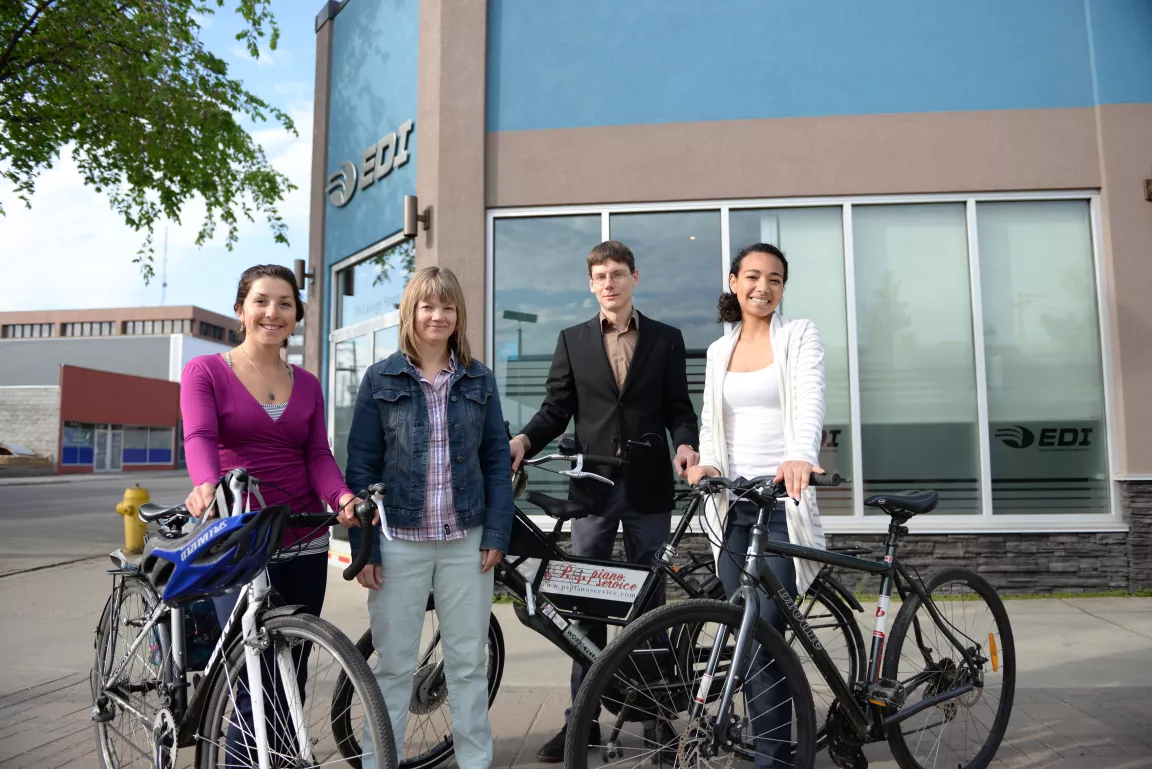Taking Steps to Reduce Carbon Footprints
Sustainability is serious business and University of Northern British Columbia students are helping local entrepreneurs find ways to be environmental leaders, and save money while doing it. The course has been made possible through donations to Experiential Learning

Sustainability is serious business and University of Northern British Columbia students are helping local entrepreneurs find ways to be environmental leaders, and save money while doing it.
Environmental Planning student Danielle Patterson was one of the first UNBC students to take part in the innovative Carbon Management course, in partnership with the Prince George Chamber of Commerce’s CN Carbon Reduction Project for Business.
Now in its third year, the course pairs students with local businesses interested in reducing their carbon footprints.
During the semester, the students work closely with the business owners by performing an audit of their energy use and conducting a carbon footprint analysis. At the end of the course, the students present the businesses with practical suggestions on how they can become more energy efficient, and save money in the process.
The course has been made possible through donations to Experiential Learning and is just one example of how UNBC’s small class sizes and integration with community groups provide opportunities to integrate experience with education and ready students for real-life problem solving after graduation.
“When you learn something in class, you can only imagine or guess at what real-world hiccups or issues may arise in calculations for something like carbon emission equivalencies,” Patterson said. “Then you meet with a local business person and learn about the details of how their operations work, and it gives you a whole new perspective.”
The course is not only popular with students eager to learn more about sustainability, it has also received plaudits from the participating businesses.
Nancy O’s restaurant co-owner and UNBC graduate Eoin Foley said his business saw immediate results working with the students as they helped identify ways new equipment could help the eatery save energy and money.
“We've had a great experience working with the Chamber and students from UNBC to assess our carbon footprint,” he said. “We have received a rebate from Fortis for purchasing new higher efficiency equipment.”